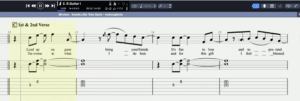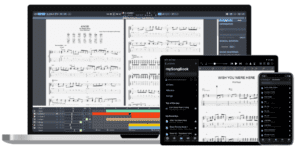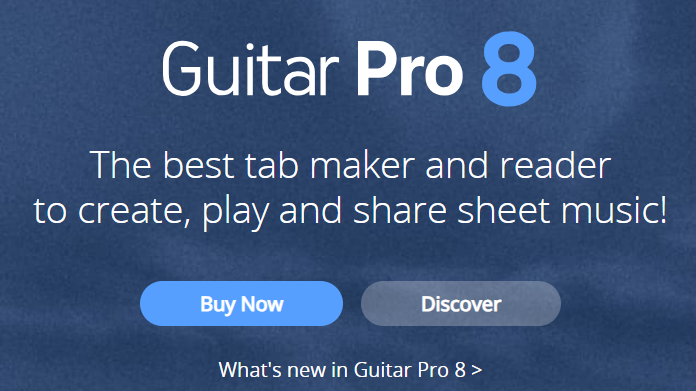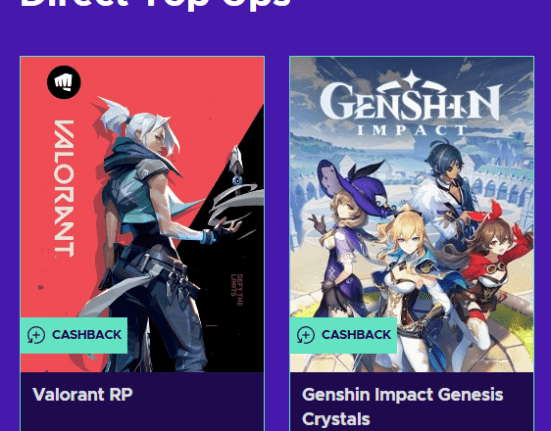Introduction to Guitar Software Editors
Are you ready to take your guitar playing to the next level? Whether you’re strumming your first chords or shredding like a pro, having the right tools makes all the difference. Guitar software editors have become essential for musicians of every skill level. These powerful applications can help you write music, edit recordings, and even simulate effects that would usually require expensive gear.
But with so many options available, how do you choose the best one for your needs? This guide will walk you through top features to look for in guitar software editors and highlight some of the best choices tailored specifically for beginners, intermediate players, and advanced musicians alike. Get ready to find your perfect match!
Every musician knows that the right tools can make all the difference. For guitarists, software editors have become essential companions on their musical journey. They offer a world of possibilities, allowing you to explore tones, tweak sounds, and elevate your playing experience.
Whether you’re a seasoned pro or just starting out, finding the perfect guitar software editor can be daunting. With so many options available today—ranging from simple apps to complex digital audio workstations—it’s hard to know where to begin.
But fear not! We’ve scoured through various tools and features to curate a list that caters to every type of guitarist. From recording and editing capabilities to intuitive interfaces and unique effects, we’ve got you covered in this deep dive into the best guitar software editors on the market today. Let’s unlock those creative potentials together!
Top Features to Look for in Guitar Software Editors
When searching for the right guitar software editor, consider user interface design. A clean layout makes navigation effortless, allowing you to focus on creating music.
Another crucial feature is compatibility with various audio formats. This flexibility ensures seamless integration with your existing workflow and other tools.
Look for versatile effects and amp simulations. These options enhance your sound, providing a range of tones that cater to different styles and preferences.
MIDI support can be a game changer, especially for those wanting to experiment with composition or connect virtual instruments.
Don’t overlook collaboration features either. Being able to share projects easily keeps creativity flowing between bandmates or fellow musicians.
Check out the regular updates offered by the developer. Ongoing improvements indicate a commitment to refining the software experience over time.

Best Guitar Software Editors for Beginners
For beginners, choosing the right guitar software editor can make a significant difference in developing skills. These tools often come with user-friendly interfaces that simplify navigation and learning processes.
One standout option is GarageBand. This software provides an intuitive layout, making it easy for newcomers to record and edit music. Its built-in loops and virtual instruments offer plenty of creative opportunities without overwhelming users.
Another excellent choice is Audacity, known for its straightforward functionality. It’s open-source and free, giving beginners access to essential features like multi-track editing and effects without any financial commitment.
TuxGuitar stands out for those wanting to learn tablature writing. Its clear display allows novices to understand musical notation while composing their own pieces easily. Each of these options encourages experimentation while building foundational skills in a stress-free environment.
Best Guitar Software Editors for Intermediate Players
Intermediate players are often ready to explore deeper musical concepts. The right software can elevate their skills and creativity significantly.
One standout option is Guitar Pro. It offers advanced tablature editing, a vast library of songs, and tools for composing your own music. Its playback feature helps users hear complex pieces come to life.
Another solid choice is Reaper. Known for its flexibility, it supports various plugins and provides extensive recording features suitable for more intricate projects.
Then there’s AmpliTube 5, an excellent tool for those looking to refine their tone with realistic amp simulations and effects. With this software, guitarists can experiment with sounds that match their unique style.
These editors cater perfectly to the needs of intermediate musicians seeking growth in both technique and artistry.
Best Guitar Software Editors for Advanced Musicians
Advanced musicians often seek software that matches their expertise. The right tools can elevate creativity and streamline complex projects.
Pro Tools stands out with its robust audio editing capabilities. It’s perfect for intricate arrangements and professional-grade mixing. Musicians appreciate the precision it offers during post-production.
Logic Pro X is another favorite among seasoned players. Its wide array of plugins allows for endless sound manipulation, making it ideal for crafting unique tones. Plus, the intuitive interface keeps distractions to a minimum.
For those who prefer a more customizable experience, Ableton Live shines in live performances and studio work alike. Its session view enables spontaneous creation while maintaining control over multiple tracks.
Cubase delivers advanced MIDI features alongside powerful audio recording options. It’s an all-in-one solution that caters to diverse musical styles and workflows, ensuring no creative idea goes unexplored.


Comparison of Top Guitar Software Editors
When considering the best guitar software editors, it’s essential to weigh your individual needs as a musician against the features offered by each program. Different players have different goals, whether they are just starting out or looking for advanced capabilities.
For beginners, software like GarageBand or Audacity provides an intuitive interface and basic functionalities that help build foundational skills. As you progress, options such as Guitar Pro and Reaper offer more sophisticated tools for composition and recording that can handle complex projects with ease.
Intermediate players might find value in programs like MuseScore and AmpliTube which balance user-friendliness with advanced features. These editors allow for greater creativity while still being manageable enough not to overwhelm a developing guitarist.
Advanced musicians typically seek comprehensive solutions such as Logic Pro X or Ableton Live. These platforms provide extensive editing capabilities, professional-grade sound libraries, and detailed customization options that cater specifically to seasoned artists who demand precision in their craft.
Next time you’re on the hunt for guitar software editors, remember these comparisons. Each option presents unique benefits tailored to specific skill levels and creative aspirations. Whether composing original tracks or refining existing ones, there’s something out there suited perfectly for every player’s journey.








